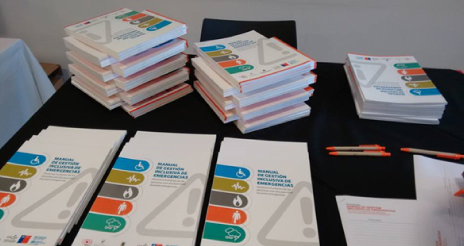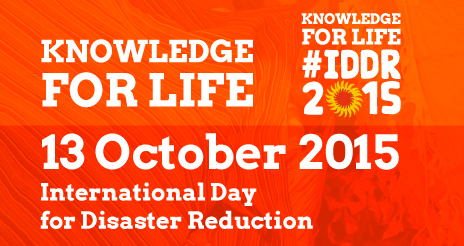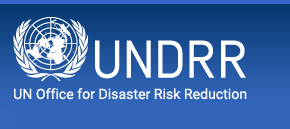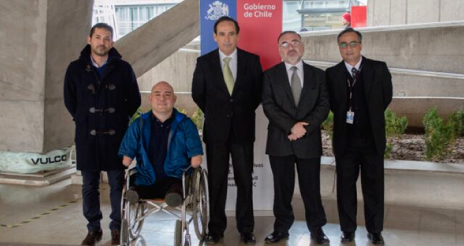- Our Mandate
- Mission and Objectives
- UNDRR in the UN
- Work Programme & Annual Reports
- Results Based System
- Work Partnerships
- Headquarters - Geneva
- SG-UN representatives for DRR
- Regional Office – The Americas and the Caribbean
- Head of the Regional Office – The Americas and the Caribbean
- What is Disaster Risk Reduction?
- What is the International Strategy?
- History of UNDRR
Print edition of Handbook on Emergency and Disability launched: A result of the cooperation between countries of the Americas that inspires projects throughout the continent.
By: UNDRR – The Americas.
Santiago, Chile, July 27, 2015 - The NGO Inclusiva, winner of the 2014 Risk Award, together with the National Emergency Office of Chile ONEMI, the Metropolitan Technological University, Southern University of Chile and PAHO/WHO, launched the printed version of the “Manual for Inclusive Emergency Management: Human rights of people with disabilities in emergencies.”
The Manual aims to contribute to saving lives, protecting the dignity of the physical and mental integrity of persons with disabilities in emergencies and disasters. It provides recommendations for people with disabilities, their families and caregivers, territorial and functional community-based organizations, local governments, regional governments, national governments, the private sector and international organizations.
ONEMI National Director, Ricardo Toro, said “Chile is a country constantly exposed to multiple threats, which is why the issue of the protection of people, in this case, those with disabilities, cannot be left out. It is an issue that we have addressed as an institution in full compliance with the Sendai Framework, and that we are refining thanks to a joint endeavor with public and private institutions.”
Carlos Kaiser, lead author and coordinator of the editorial team said: “The importance of the manual lies in its ability to be adapted to different projects that protect the disabled in emergencies. This document has inspired projects in Uruguay, Chile, Argentina and India.”
The importance of the “Manual for Inclusive Emergency Management: Human rights of people with disabilities in emergencies" is its practical use that meets the needs of people with disabilities, which according to the World Report on Disability at the World Health Organization encompases 15% of the population.
It is worth noting that the “Manual for Inclusive Emergency Management: Human rights of people with disabilities in emergencies” gave rise to the "Inclusive Plan for Emergency and/or Disaster Situations (PISEC),” which provides for coordinated action to reduce disaster risk with an inclusive approach between local governments, organizations of and for persons with disabilities and the government of the province of Buenos Aires.
Institutions such as PAHO/WHO, Austral University of Chile, Pedro Aguirre Cerda National Rehabilitation Institute, Chilean Association of Municipalities, COPRODIS of Argentina, IP Chile, CNREE, Talcahuano Health Service and the Municipality of Peñaflor participated in the manual´s production.

Copies of the “Manual for Inclusive Emergency Management: Human rights of people with disabilities in emergencies." Photo credit: Esteban Iriarte
Related links:
Manual for Inclusive Emergency Management: Human rights of people with disabilities in emergencies (Spanish).
Follow the UNDRR news online:
 International Day for Disaster Reduction #DIRD 2015 Knowledge for Life
International Day for Disaster Reduction #DIRD 2015 Knowledge for Life
More information

 Cristian Salazar, Academic Southern University of Chile, Carlos Kaiser, Executive Director Inclusiva NGOs, Ricardo Toro, National Director ONEMI, Mario Torres, Vice Rector Technology Transfer and Extension of the Metropolitan Technological University, and Miguel Muñoz, National Sub Director of Risk Reduction ONEMI. Photo credit: Esteban Iriarte.
Cristian Salazar, Academic Southern University of Chile, Carlos Kaiser, Executive Director Inclusiva NGOs, Ricardo Toro, National Director ONEMI, Mario Torres, Vice Rector Technology Transfer and Extension of the Metropolitan Technological University, and Miguel Muñoz, National Sub Director of Risk Reduction ONEMI. Photo credit: Esteban Iriarte.